Broadway Gondolier

Brief Synopsis
Cast & Crew
Lloyd Bacon
Dick Powell
Joan Blondell
Adolph Menjou
Louise Fazenda
William Gargan
Film Details
Technical Specs

Synopsis
When two music critics hear their taxi driver, Dick Purcell, sing an operatic aria, they are so impressed that they send him to radio producer, E. V. Richards. Because Mrs. Flagenheim, the sponsor of the Flagenheim Cheese Hour, wants a new romantic program, Alice Hughes, Richards' secretary, arranges for Dick to audition. Dick misses his first audition, however, and alienates Richards, who orders him out of the station. Dick's singing teacher, Professor Eduardo deVinci, is convinced that there is no opportunity for artists in the United States, so scraping together his last few dollars, Dick sends deVinci to Italy, planning to join him later. At the same time, Mrs. Flagenheim decides that there is no talent in the United States worthy of her cheese, and she and Alice leave for Italy to look for new talent. By chance, they take Dick's cab to the pier, and on the spur of the moment, he stows away. In Venice, Dick finds that deVinci not been as successful as he had hoped and is working as a gondolier. Mrs. Flagenheim hears Dick singing as he floats down the canals and, thinking that he is Italian, hires him for her program. Although she immediately recognizes Dick, Alice says nothing because she is falling in love with him. After they return to New York, Dick's disguise is quickly penetrated. His former fellow taxi drivers recognize him, and Alice's jealous boyfriend, Cliff Stanley, threatens him with exposure if he doesn't stay away from her. Richards and Alice both encourage Dick to continue the pretense, but he rebels and, after announcing his imposture over the air, walks away from the program. The station is deluged with letters from Dick's female fans, who don't care if he is Italian or not. DeVinci finds Dick driving a cab and brings him back to the station. When Alice hears Dick's voice over the radio, she hurries to the station and joins him in a romantic duet.

Director

Lloyd Bacon
Cast

Dick Powell

Joan Blondell
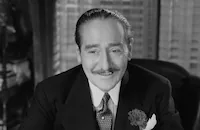
Adolph Menjou

Louise Fazenda
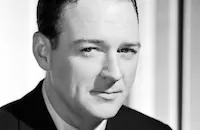
William Gargan

George Barbier
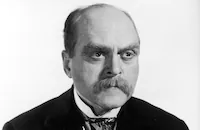
Grant Mitchell
Ted Fio Rito And His Band
The Four Mills Brothers
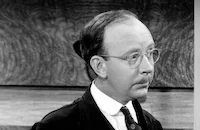
Hobart Cavanaugh
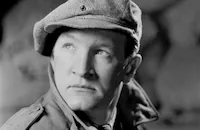
Joseph Sauers
Rafael Storm
Bob Murphy

James Burke
The Judy Canova Family

June Travis
Selmer Jackson
Joseph E. Bernard
Ernest Wood
Gino Corrado
Sam Ash
Andre Cheron
Jack Norton
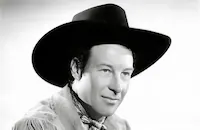
Gordon Elliott
George Chandler
Tom Hanlon
William Jeffrey
Henry De Silva
Rolfe Sedan
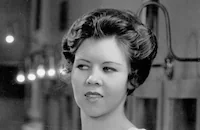
Mary Treen
Elsa Peterson
Coco
Leo F. Forbstein

Lloyd Bacon
Crew
George Amy
George Barnes
Sam Bischoff
Al Dubin
Warren B. Duff
Julius J. Epstein
Leo F. Forbstein
Anton Grot
E. Y. Harburg
Sig Herzig
Sig Herzig
Hans Kraly
Orry-kelly
Jerry Wald
Harry Warren

Film Details
Technical Specs

Articles
Broadway Gondolier
Indicative of how homogenized Powell's screen persona had already become, the script cast him as "Dick Purcell," a New York cabby with aspirations of being recognized as a serious vocalist. His vocal prowess impresses two music critic passengers to arrange a meeting with radio producer E.V. Richards (Grant Mitchell); Dick wastes no time in frittering the rare opportunity away, blowing off the audition and angering Richards. Purcell then offers up the last of his savings to his mentor, Professor deVinci (Adolphe Menjou), so that he can pursue his studies in Italy.
Richards' primary sponsor, the cheese magnate Mrs. Flagenheim (Louise Fazenda), opts to visit Venice to hunt for a new talent to anchor her radio hour, taking Richards' pretty secretary Alice Hughes (Joan Blondell) in tow. Coincidentally enough, they take Purcell's hack to the pier, and he makes a last-minute decision to stow away. Upon his arrival, he tracks down deVinci, finding him scraping out a living as a gondola pilot. Joining his teacher on the canals, Purcell's singing attracts Mrs. Flagenheim, who offers to make the ersatz gondolier a star. Alice, while recognizing the real identity of the sponsor's "discovery," keeps her silence. Just how long "Ricardo Purcelli" can maintain his pose once they return to the states, particularly around Alice's jealous boyfriend (William Gargan), drives the remainder of the narrative.
Powell and Blondell here display a chemistry that was more than merely surface, as they married the year after Broadway Gondolier's release, and would be together for eight years. (For what it's worth, the last two of their thirteen shared screen credits were I Want a Divorce (1940) and Model Wife (1941).) The supporting players complement the proceedings well, particularly the venerable Mack Sennett comedienne Fazenda. She seldom had trouble finding character work at Warner at this phase of her career, married as she was to estimable producer Hal B. Wallis, ribbed around the lot as "The Prizoner of Fazenda." The Mills Brothers and Judy Canova also pop up in cameo appearances.
The offerings from Warren and lyricist Al Dubin, which included Lulu's Back in Town, Rose in Her Hair, Outside of You and Sweet and Low, don't rank among their most enduring, but they were hits of their day and remain eminently listenable. The duo was recruited to Warner by Busby Berkeley for 42nd Street (1933), and that memorable score made them fixtures of the studio's musical output. By the time of his retirement in 1967, Warren had composed some 300 songs for over 50 films, and he had taken home three Oscars® for Lullaby of Broadway, You'll Never Know and The Atcheson, Topeka and the Santa Fe.
Producer: Samuel Bischoff
Director: Lloyd Bacon
Screenplay: Sig Herzig, E.Y. Harburg, Hanns Kraly, Warren Duff
Cinematography: George Barnes
Film Editing: George Amy
Art Direction: Anton Grot
Music: Harry Warren
Cast: Dick Powell (Richard Purcell), Joan Blondell (Alice Hughes), Adolphe Menjou (Professor Eduardo de Vinci), Louise Fazenda (Mrs. Flaggenheim), William Gargan (Cliff Stanley), George Barbier (Music Critic Hayward).
BW-99m.
by Jay S. Steinberg

Broadway Gondolier
Quotes
Trivia
Joseph E. Bernard is listed in the studio records in the role of "Official", but was not seen in the print.
Notes
Variety mentions that Coco was part of the team Candy and Coco and notes that Bob Murphy made his film debut in this film.















